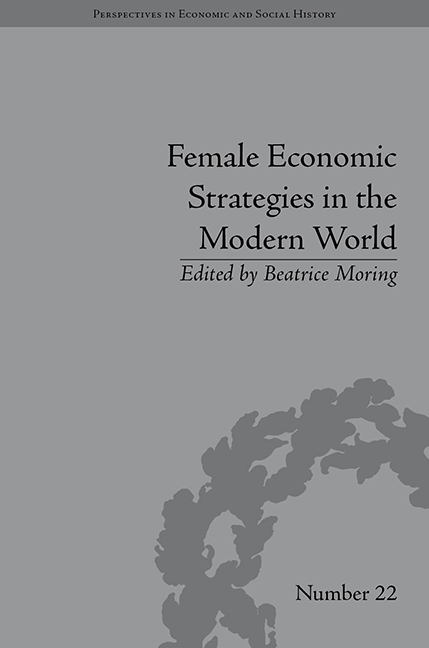Book contents
- Frontmatter
- Contents
- List of Contributors
- List of Tables
- Introduction
- 1 Widows, Family and Poor Relief in England from the Sixteenth to the Twentieth Century
- 2 Survival Strategies of Poor Women in Two Localities in Guipuzcoa (Northern Spain) in the Nineteenth and Twentieth Centuries
- 3 Women, Work and Survival Strategies in Urban Northern Europe before the First World War
- 4 Women, Households and Independence under the Old English Poor Laws
- 5 The Economic Strategies of Widows in Switzerland from the mid-Nineteenth to the mid-Twentieth Century
- 6 Mexico: Women and Poverty (1994–2004): Progresa-Oportunidades Conditional Cash Transfer Programme
- 7 Gender and Migration in the Pyrenees in the Nineteenth Century: Gender-Differentiated Patterns and Destinies
- 8 Women and Property in Eighteenth-Century Austria: Separate Property, Usufruct and Ownership in Different Family Configurations
- Notes
- Index
6 - Mexico: Women and Poverty (1994–2004): Progresa-Oportunidades Conditional Cash Transfer Programme
- Frontmatter
- Contents
- List of Contributors
- List of Tables
- Introduction
- 1 Widows, Family and Poor Relief in England from the Sixteenth to the Twentieth Century
- 2 Survival Strategies of Poor Women in Two Localities in Guipuzcoa (Northern Spain) in the Nineteenth and Twentieth Centuries
- 3 Women, Work and Survival Strategies in Urban Northern Europe before the First World War
- 4 Women, Households and Independence under the Old English Poor Laws
- 5 The Economic Strategies of Widows in Switzerland from the mid-Nineteenth to the mid-Twentieth Century
- 6 Mexico: Women and Poverty (1994–2004): Progresa-Oportunidades Conditional Cash Transfer Programme
- 7 Gender and Migration in the Pyrenees in the Nineteenth Century: Gender-Differentiated Patterns and Destinies
- 8 Women and Property in Eighteenth-Century Austria: Separate Property, Usufruct and Ownership in Different Family Configurations
- Notes
- Index
Summary
Introduction
This presentation will analyze and reflect on the socioeconomic status of low-income households headed by women in Mexico, particularly with regard to inequality in the workplace, salary and educational discrimination. In addition, the government's Progresa-Oportunidades Programme, designed to provide support for poor women, will be scrutinized.
Currently, several poverty-remediation programmes involving conditional cash transfers are in operation in Mexico. An example of these programmes is the Food, Health and Education Programme (Progresa-Oportunidades) launched at the end of the 1990s. This Programme is centred on the concept of maternalism, a vision of the traditional, social and biological roles of women, and it offers poor women cash in exchange for good motherhood. In order to ensure success, women are incorporated into the design of the Programme in a way that deepens gender division. Progresa-Oportunidades ultimately also reinforces social division, with the resulting replication of gender asymmetries, even though the management of the support resources to some extent empowers women within the household. Underprivileged mothers often participate in the Programme in the hope that their daughters will gain access to opportunities to improve their lives. In other words, the programme is used as a female survival strategy.
Poor Households Headed by Women
Over the past thirty years, economic transformation, characterized by unstable employment and a broad process of increasingly precarious labour circumstances, has taken a heavy toll on women in terms of living and working conditions.
- Type
- Chapter
- Information
- Female Economic Strategies in the Modern World , pp. 109 - 126Publisher: Pickering & ChattoFirst published in: 2014



